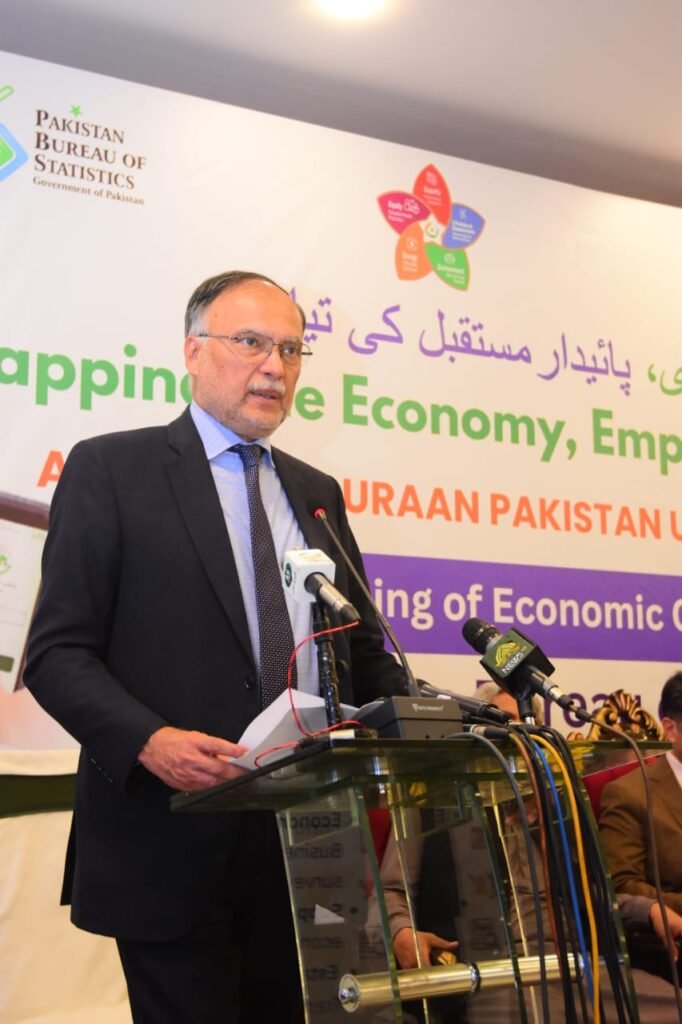
Islamabad :- Federal Minister for Planning, Development & Special Initiatives, Ahsan Iqbal, has said that credible data is the backbone of sustainable development, as it enables evidence-based planning and effective decision-making. He emphasized that even artificial intelligence cannot function effectively without reliable data, noting that in the digital economy, data is the true fuel driving growth. He was addressing the launching ceremony of Pakistan’s first-ever Economic Census.
The Minister highlighted that in August, the nation received two historic gifts from the Ministry of Planning. On August 6, for the first time, the results of the consolidated Agricultural, Livestock, and Machinery Census were released, a task previously conducted once every ten years but now completed within just eighteen months. Today, he said, another milestone has been achieved with the release of Pakistan’s first Economic Census, one of the most important outcomes of the 7th Population and Housing Census.
He noted that while neighboring countries have conducted regular economic censuses since 1977, Pakistan had lagged behind. An attempt was made in 2003 but did not succeed. This gap, however, has now been filled. Following international best practices, the Pakistan Bureau of Statistics (PBS) integrated economic and household-level activity questions into the population census framework. This innovation not only improved data quality but also saved the government approximately Rs. 7 billion.
Sharing the scale of the exercise, the Minister said that 40 million buildings across the country were geo-tagged, out of which 7.2 million were identified as economic establishments, including retail shops, service outlets, factories, educational and healthcare institutions. Each establishment was coded under the Pakistan Standard Industrial Classification, enabling policymakers and the private sector to better analyze clusters and make informed decisions.
Of the 7.2 million economic units, 2.7 million are retail businesses, 188,000 wholesale enterprises, 825,000 service shops, 23,000 factories, and 643,000 production units. Comparing these figures with just 250,000 companies registered with SECP, Ahsan Iqbal said the census underscores vast opportunities for business formalization, tax net expansion, and investment.
He further underlined the importance of capturing household-based economic activities, which involve nearly 10 million households engaged in small-scale businesses such as food preparation, tailoring, beauty parlors, livestock, poultry, and retail trade. This data is particularly vital for recognizing and enhancing the economic contribution of women, supporting their empowerment, and expanding income and employment opportunities.
In addition to economic activities, the census has also provided key insights into Pakistan’s social and educational infrastructure, identifying 242,000 schools, 36,000 madrassas, 11,568 colleges, 214 universities, 119,000 health facilities, and over 600,000 places of worship. According to the Minister, this information will enable provincial governments to address gaps in supply and demand, ensure transparent public investments, and improve service delivery and accountability.
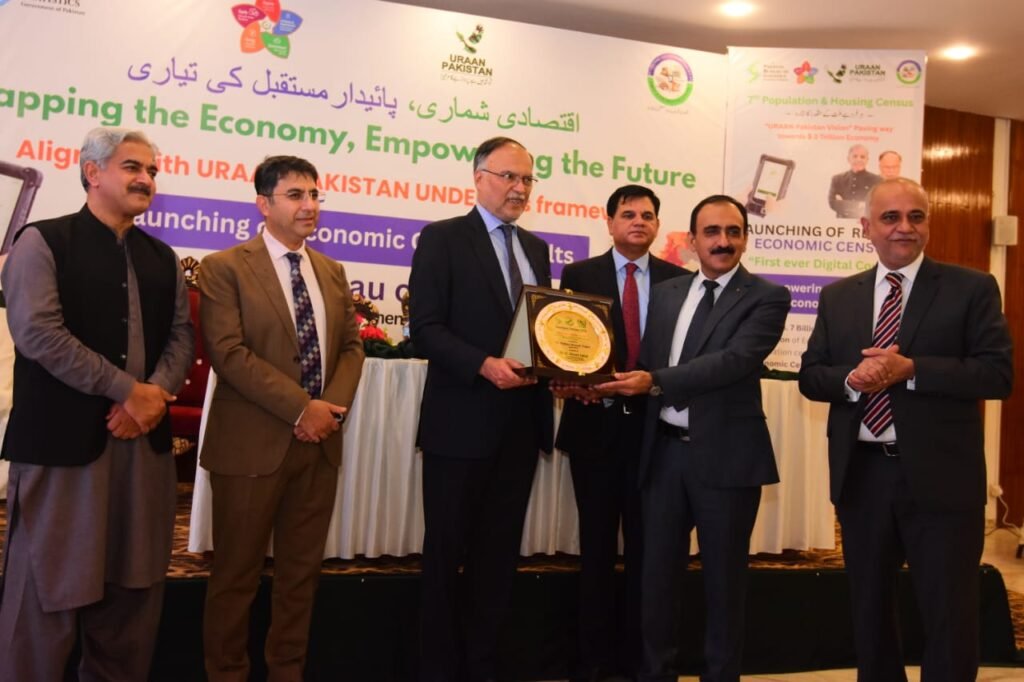
Professor Ahsan Iqbal concluded that the Economic Census is not merely a dataset but a foundation stone for Pakistan’s economic self-reliance, expansion of investment, creation of employment opportunities, women’s inclusion, and sustainable growth. He expressed confidence that if all stakeholders work together to utilize this data effectively, Pakistan’s economy will achieve a new trajectory of progress and the dream of “Uraan Pakistan” will be realized.
Sohail Majeed is a Special Correspondent at The Diplomatic Insight. He has twelve plus years of experience in journalism & reporting. He covers International Affairs, Diplomacy, UN, Sports, Climate Change, Economy, Technology, and Health.


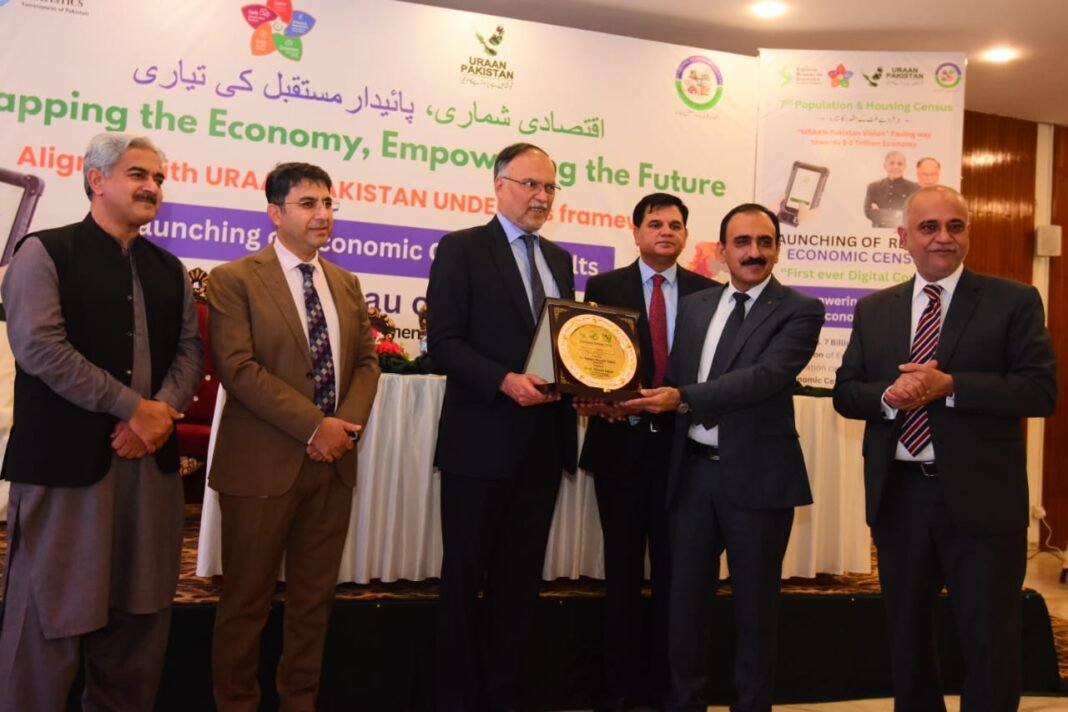

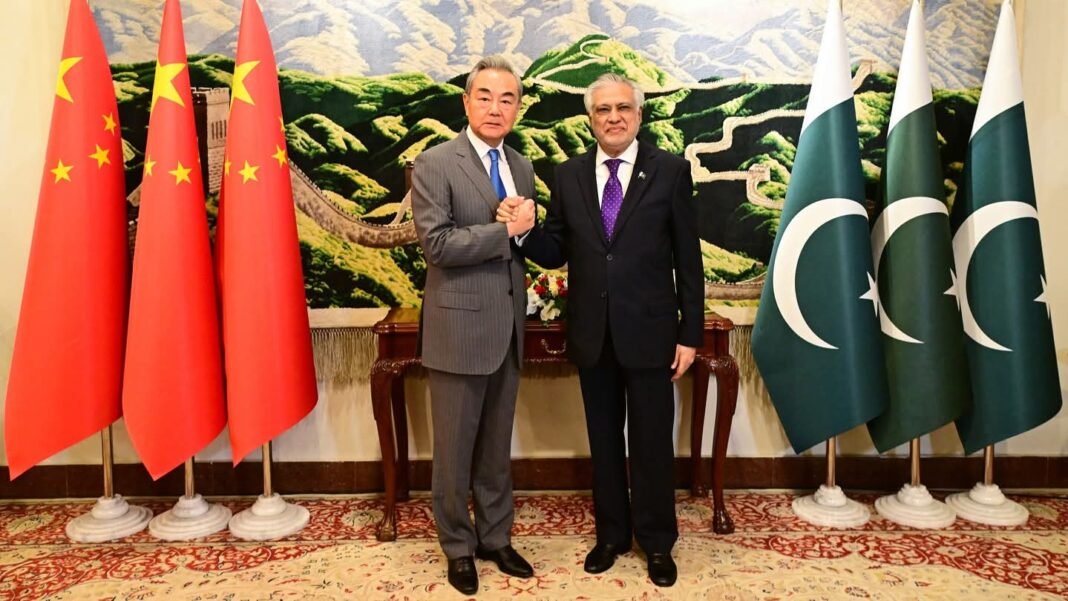
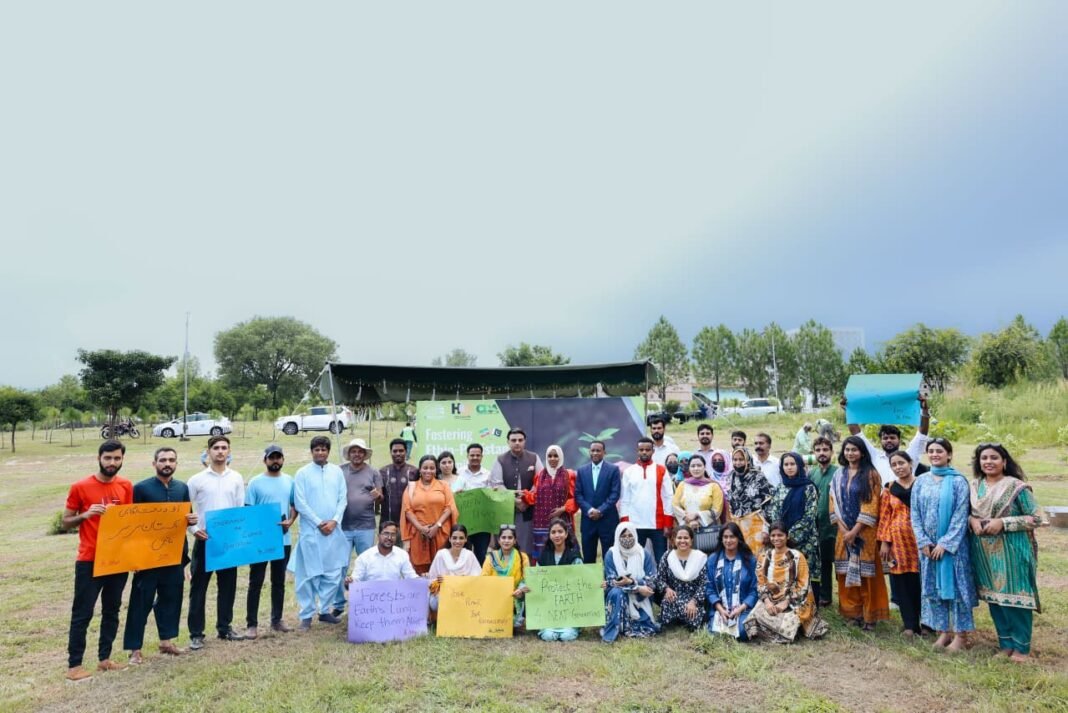
![logo-1[1]](https://globalnewspakistan.com/wp-content/uploads/2025/01/logo-11-e1737618310315-300x187.png)